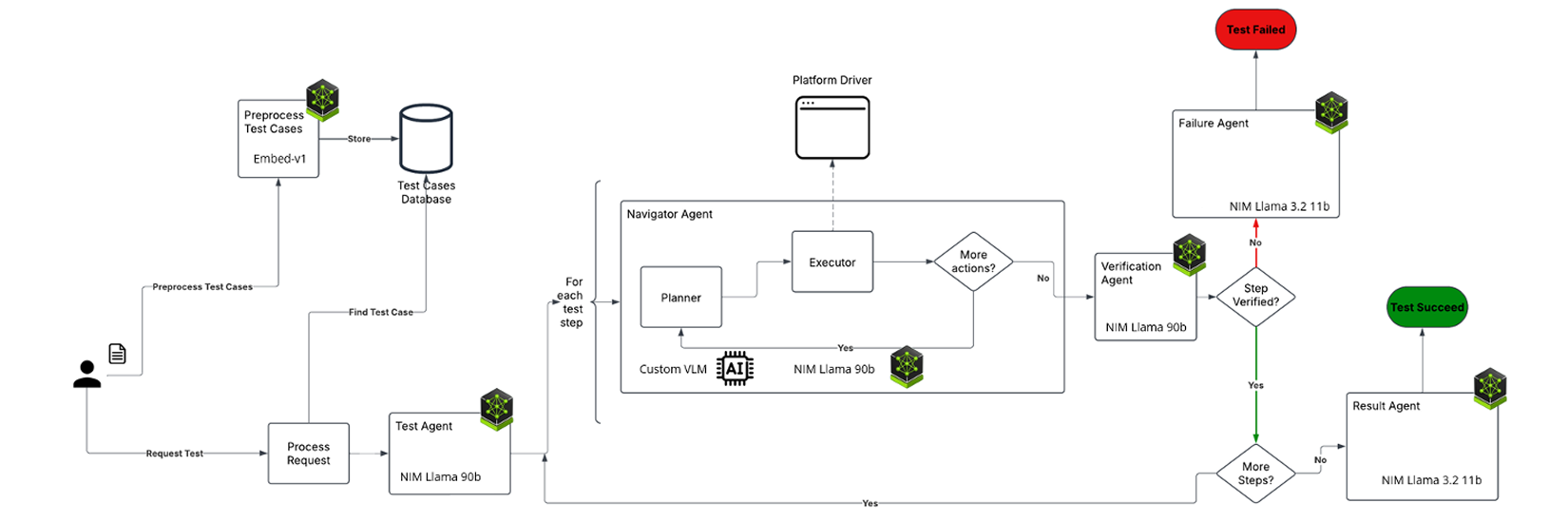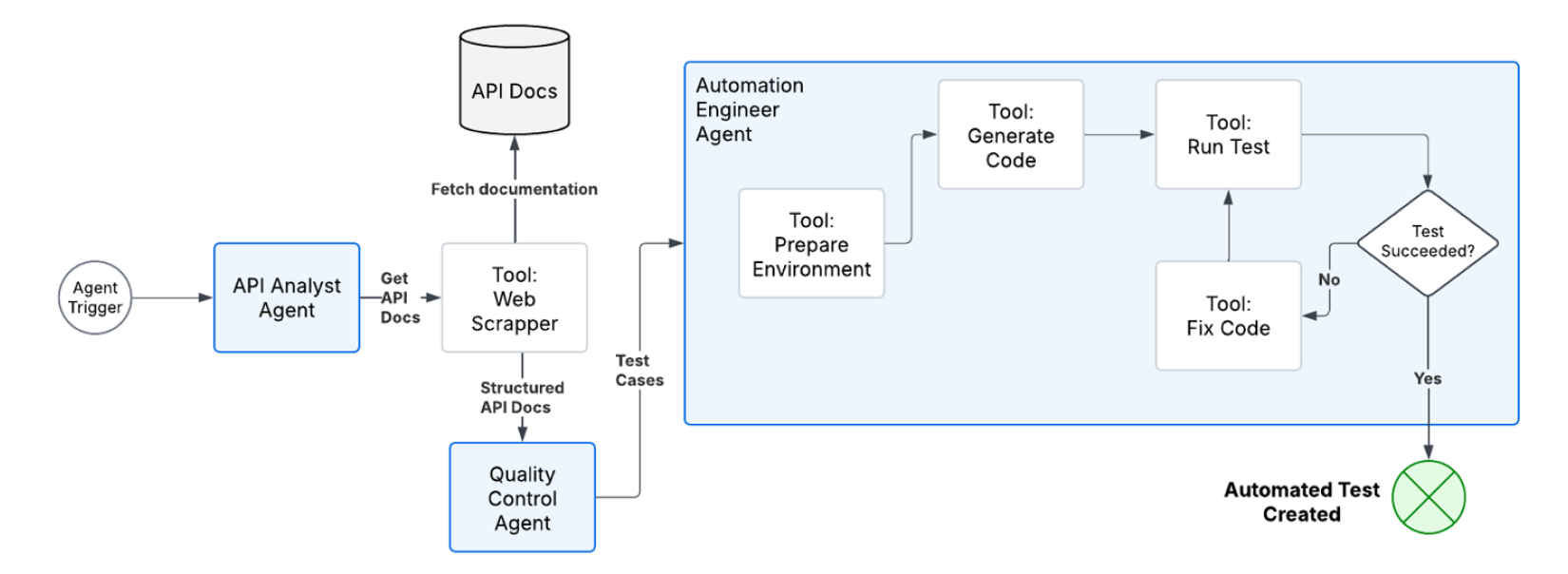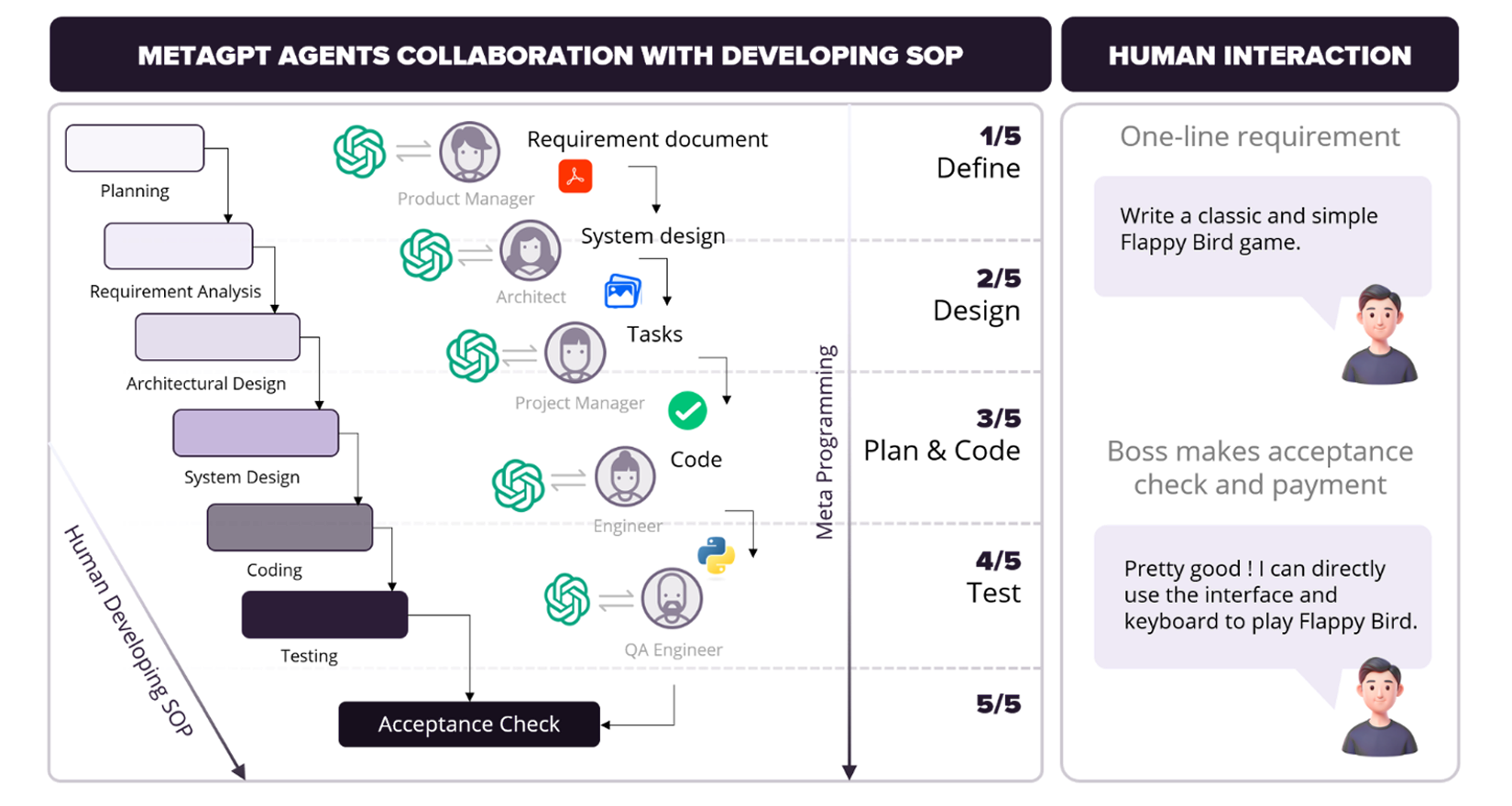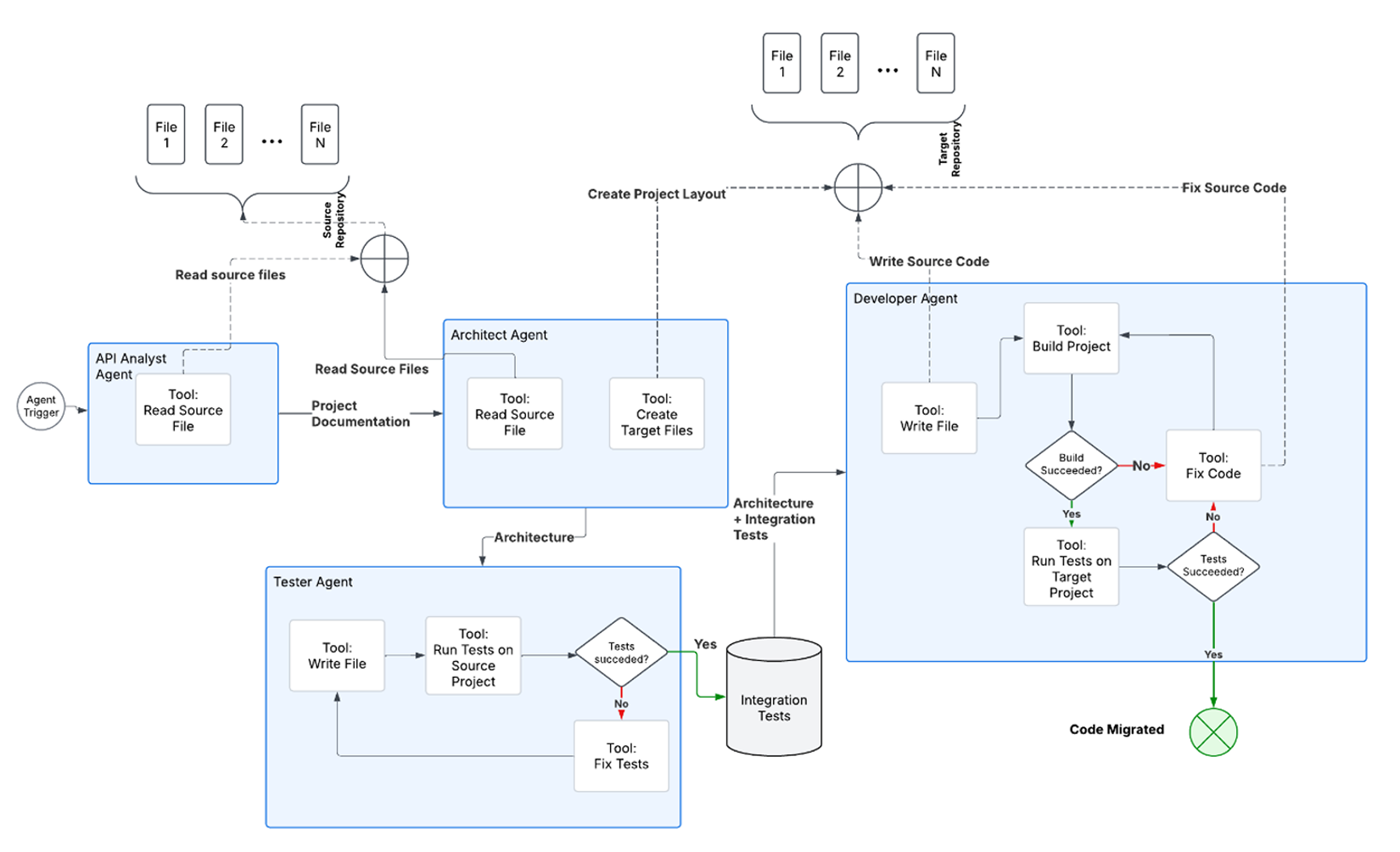Streamlining App Modernization With Agentic AI
Modernizing applications isn’t just a technical challenge; it’s a balancing act between innovation and continuity. But it’s a must. Legacy applications are becoming a major roadblock for businesses striving to stay competitive.
Maintaining outdated systems makes up 70% of enterprise IT budgets, yet these aging applications slow down innovation, increase costs, and create security risks. At the same time, traditional modernization efforts — often manual, expensive, and time-consuming — fail to meet the growing demand for agility and scalability.
What if there was a more efficient, cost-effective, and intelligent way to modernize? Enter Agentic AI, a game-changing approach that leverages specialized AI agents to automate code transformation, refactoring, and migration, reducing effort by up to 50%. AI agents have proven to deliver measurable results — from reducing modernization time by 30% to cutting costs by 20%.
Businesses can accelerate application modernization and cut costs by using AI agents to optimize the process. Below, we’ll discuss how to apply these insights to your own modernization strategy and make smarter, faster decisions about your legacy systems.

Reimagine application modernization with AI
Application modernization has long been plagued by challenges. Organizations must balance innovation with cost, ensuring minimal disruptions while upgrading outdated architectures to meet changing business and user demands. Some of the main obstacles companies face include:
- Time-consuming manual processes that slow innovation
- Technical debt that makes systems harder to maintain
- High costs associated with skilled labor and outdated infrastructure
Agentic AI changes this landscape by introducing task-driven AI agents that automate and optimize modernization workflows. These agents operate across different layers of the modernization process, including:
- Legacy code analysis and refactoring:
- AI models analyze existing codebases to identify patterns and dependencies.
- Automated code refactoring reduces migration effort by up to 50%.
- Migration strategies and architecture transformation:
- AI assists in transitioning applications from on-premises to cloud, monolith to microservices, or legacy to modern frameworks.
- Ensures code performance and scalability in the new environment.
- Quality assurance and testing:
- AI-driven QA agents automate testing, ensuring seamless functionality post-migration.
- Reduces testing time while enhancing software reliability.

Code conversion with Agentic AI
As businesses transition from legacy systems to modern platforms, code conversion becomes a critical challenge. Traditional migration methods are slow, expensive, and prone to inefficiencies, leading to compatibility issues, technical debt, and prolonged development cycles.
Agentic AI optimizes code migration and conversion by leveraging AI-driven automation. It ensures seamless transitions between different programming languages, frameworks, and architectures — faster, more accurately, and with minimal human intervention.
Agentic AI enhances code conversion by offering:
- Intelligent code translation
- Unlike rule-based translation tools, Agentic AI understands business logic, ensuring that migrated code:
- Preserves functional accuracy
- Optimizes for the target platform
- Maintains readability for future maintenance
- Unlike rule-based translation tools, Agentic AI understands business logic, ensuring that migrated code:
- Faster migration with minimal effort
- AI-driven automation allows entire codebases to be analyzed and converted in a fraction of the time required for manual conversion.
- Ideal for:
- Legacy modernization (e.g., COBOL to Python, C++ to C#).
- Cloud migration, adapting applications for AWS, Azure, or Google Cloud.
- Cross-platform development, enabling seamless transitions between tech stacks.
- Reducing technical debt and enhancing code quality
- AI doesn’t just translate code — it refactors and optimizes code for better maintainability.
- Benefits include:
- Cleaner, more efficient code following modern best practices.
- Reduced redundancy through dependency analysis and optimization.
- Automated validation to maintain accuracy post-migration.
Take a systematic approach to AI agents-backed code migration process
A structured approach to AI-driven code migration ensures seamless execution and minimal risk. It should include:
Rapid assessment and feasibility analysis:
- AI scans the existing codebase to identify complexity, dependencies, and potential migration challenges.
- A custom roadmap is developed to guide the migration strategy.
Pilot implementation and testing:
- A test migration is conducted on a small module for validation.
- AI-generated code is tested for accuracy, efficiency, and performance.
Full-scale code conversion and optimization:
- Once validated, the entire application is converted using AI-driven automation.
- AI optimizes and refactors the code for better performance and maintainability.
Deployment and ongoing support:
- Migrated code is deployed to the target platform.
- Post-migration support ensures stability and peak efficiency.
AI agents in action: Specialized roles for faster modernization
SoftServe provides your organization with agents that learn from your existing application landscape and autonomously modernize legacy systems, refactor code, and orchestrate infrastructure transitions, delivering unprecedented efficiency.
SoftServe’s Agentic Software Modernization Solution integrates multiple specialized AI agents, including:
- Architect Agent – Analyzes system structure and suggests optimized modernization strategies.
- BA Agent – Extracts business rules and ensures domain-specific accuracy.
- Developer Agent – Refactors and migrates code efficiently.
- QA Agent – Automates testing to maintain quality during transformation.


Our Agentic Modernization Solution analyzes the application codebase and requirements, suggests the new project structure, and then takes strategic actions while keeping humans in the loop.

This multi-agent system orchestrates modernization efforts, dramatically improving efficiency and cost-effectiveness.
Use cases:
- On-premises code modernization for cloud applications
- Frontend modernization
- Upgrading to modern framework versions

Proven results: On-premises code modernization for cloud applications
One SoftServe client, a seismic modeling enterprise, needed to migrate 82 C++ modules from on-prem to the cloud while maintaining performance. In this sector, the ability to efficiently compute vast amounts of data using sophisticated algorithms is at the heart of delivering reliable insights to clients in the energy and geosciences industries.
Traditional manual migration would have required five days of development and three days of testing per module — making the process time-consuming and costly. The client needed a method to seamlessly transition their modules to the cloud environment, preserving functionality without extensive code rewrites.
SoftServe deployed an AI agent specialized in modernization, automating:
- C++ module refactoring, ensuring compatibility with cloud environments.
- Shared memory implementation between Julia and C++.
- Makefile modifications for seamless integration.
The client’s migration was successful, resulting in:
- 50% reduction in manual coding efforts.
- Faster migration with minimal human intervention.
- Uncompromised accuracy & performance in cloud-based seismic modeling.
Take the next step in modernization
AI-driven modernization is entering a new frontier. This next phase will focus on:
- Greater AI autonomy, minimizing human intervention.
- Automated modernization pipelines, accelerating transformation.
- Dynamic cost optimization, balancing small and large AI models for efficiency.
Are you ready to update your legacy applications with the help of AI? SoftServe’s Agentic AI-powered modernization helps you accelerate the journey to cloud, microservices, and modern frameworks — faster, cheaper, and with higher accuracy.
Let’s modernize together. Contact SoftServe today to learn how to deploy Agentic AI solutions for your own application modernization needs.
